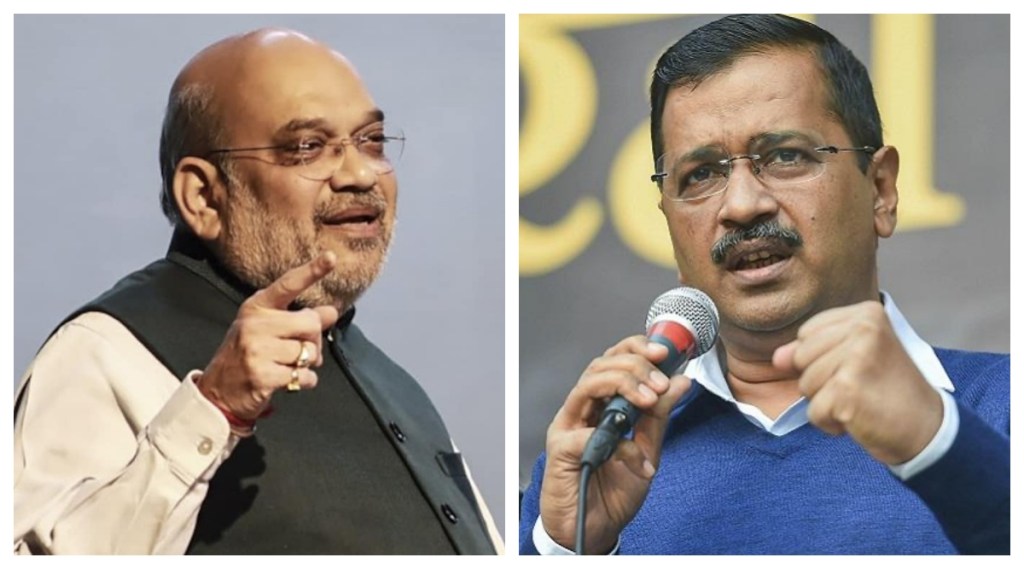The merger of the three municipal corporations in Delhi has escalated the power tussle between the Aam Aadmi Party-led government in the national capital and the BJP-ruled Centre ahead of the civic polls which were earlier scheduled to be held in April this year. While the BJP is eyeing greater control over the affairs of the national capital, the AAP has launched a no-holds-barred attack against the Centre, accusing it of shying away from a fight it was sure to lose.
While the Centre has reasoned that the reunification of the three municipal bodies will fix the financial problems they are reeling under, the AAP views it as a BJP ploy to make political gains in the face of certain defeat.
arviWhen and why was the MCD trifurcated?
The debate over reunification of the three civic bodies can be traced back to 2012 when the decision to trifurcate the MCD into three separate corporations was taken under then Chief Minister Sheila Dikshit’s watch. While the Congress had argued that it was done to “decentralise” the mammoth MCD, there was criticism from the Opposition that it was politically aimed at the Congress making inroads into the MCD, then a BJP bastion.
While Dikshit expected electoral gains from the trifurcation, the Congress lost the civic polls badly and the BJP got majority in all three corporations. The saffron party continues to rule the MCDs. Ten years later, it seems to be deja vu for observers, as the BJP is seeking to redraw the corporation’s boundaries for political gains.
Why is the BJP pushing for unification?
The MCDs have long alleged that the AAP-led government has kept them devoid of funds. With the unification, the BJP plans to send out a message that they plan to fix the MCDs’ fund crisis if voted to power again. The justification given by the party is that it wants the MCD to be run more efficiently, employees to be given better salaries and introduce new initiatives.
The BJP contends that it was the trifurcation that had led to the crisis in the MCDs and that the unification would correct a “historical wrong”. Barkha Singh, Vice President – BJP Delhi, told FinancialExpress.com that the unification will help the MCD come out of its financial crisis and lead to better coordination at work.
On AAP’s objection to the move, Singh said: “I really don’t know what they are objecting to. If they say the BJP is afraid of losing in these elections, only time will tell them who wins and who loses. History says it all.”
Why is AAP objecting?
Party convener and Delhi CM, Arvind Kejriwal, has dared the BJP to “get the civic polls in the city held on time”. The AAP, he said, will quit politics if the BJP manages to win the MCD polls, provided they are held as per schedule. The BJP, Kejriwal alleged, is getting municipal corporation elections in the city cancelled, and expressed apprehension that the same may be done for the state and national-level elections in the future.
The AAP has termed the unification move as “BJP’s tactics” to delay civic polls but asserted that it will not make any difference to its poll prospects.
What changes for the MCD after unification?
The unification of the three civic bodies nullifies their boundaries, bringing all of them under one umbrella body. The number of wards would remain the same. While the number of lower rank staff will not seem any major changes, the tally of higher rank officials would decrease in the 3:1 proportion. For instance, there will be one director for each department now instead of the previous three directors.
The Indian Express quoted senior BJP leaders as saying that among the reforms that are being considered by the party dispensation are direct election of mayor, increase in his/her tenure to at least two-and-half years from the existing one year, and provisions for allocation of funds directly from the Centre. The reunification of the three municipal bodies will also give more powers to the Mayor, the gravity and centrality of which was reduced after the trifurcation.
Economics behind reunification
Currently, all the three corporations are reeling under financial crises with the East and North MCDs being the worst hit. According to official data, the total annual income of the three corporations from their own revenues is around Rs 6,700 crore, while the total annual salary and pension expenditure for their combined 160,000 employees amount to Rs 8,900 crore.
The merger will help save around Rs 200 crore by decreasing the number of officers and renting out some spaces that will be vacated, according to a senior official quoted by The Indian Express.

